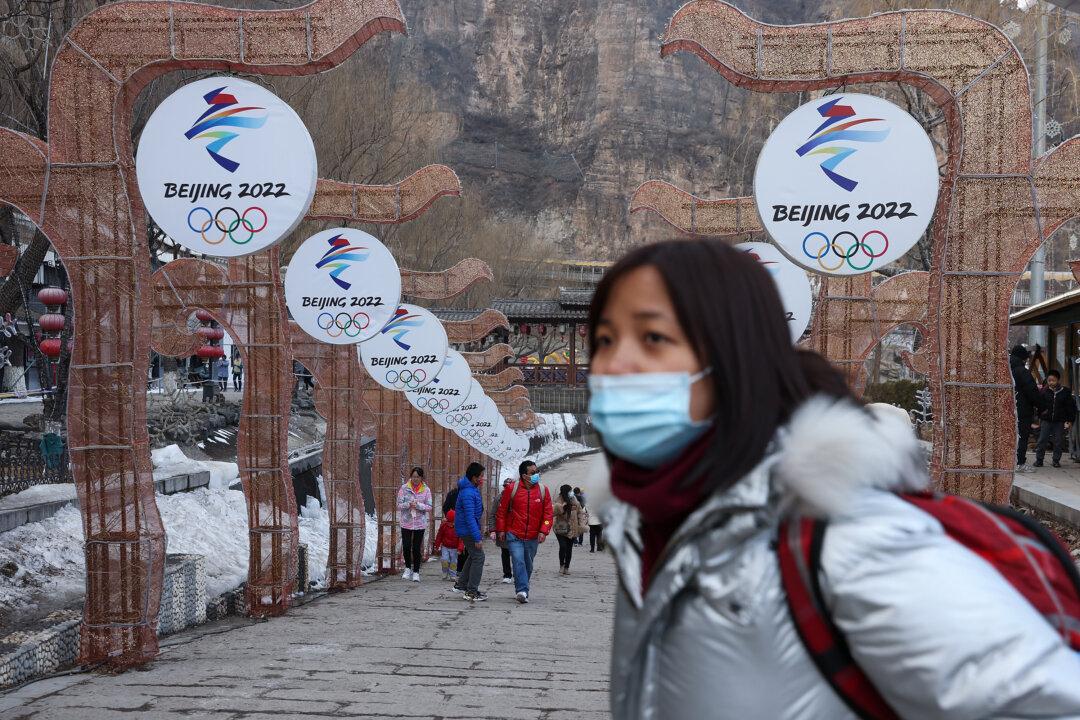With less than a year until the Winter Olympics in Beijing, calls are growing from around the globe for countries to boycott the Games over the Chinese Communist Party’s (CCP) ongoing abuse of human rights.
In the United States, Republican lawmakers have called for the Games to be moved out of Beijing, or failing that, a boycott of the event. They point to the Chinese regime’s sweeping campaign of repression against ethnic minorities, religious believers, and dissidents, with particular emphasis on its atrocities against Uyghur Muslims in the autonomous region of Xinjiang, which the Trump administration declared a genocide.
“Under no circumstance should the global community give Communist China an international platform to whitewash its crimes, which is what will happen if they are allowed to host the 2022 Olympic Games in Beijing,” Scott wrote in the letter.
“If the United States boycotts the Winter Olympics, it will send an unmistakable message that China’s tyranny and threats are unacceptable,” Haley said. “It will show that actions have consequences.”
The U.S. Olympic Committee, in response to Psaki’s recent remarks, said it opposed a boycott of the event, a position echoed by its counterparts in Canada and the UK.
“We oppose Games boycotts because they have been shown to negatively impact athletes while not effectively addressing global issues,” a spokesperson for the committee said in a statement. “We believe the more effective course of action is for the governments of the world and China to engage directly on human rights and geopolitical issues.”
Haley, in her op-ed, disagreed with those saying that boycotts don’t work, saying such arguments reveal a “lack of understanding about diplomacy.”
“When you let your counterpart get away with genocide, which is literally true of China, you’re negotiating from a position of weakness. If you stand strong on non-negotiable issues, you’re in a position of strength,” she wrote.
“Ignoring China’s evil actions is no way to stop those actions in the future, much less make progress on other critical security and economic issues.”
The Chinese regime hasn’t reacted kindly to the boycott campaign, accusing countries of politicizing the Games. Hu Xijin, editor-in-chief of China’s hawkish state mouthpiece Global Times, has also taken to Twitter to threaten trade sanctions against countries that decide to boycott the Beijing Olympics.
The IOC, in a statement to The Epoch Times in early February, said that by choosing Beijing to host the Olympics, its evaluation commission had “considered the views of independent NGOs with respect to a number of issues, including human rights” and raised the concerns with government authorities.
Repeating History
Despite Beijing’s insistence that sports and politics should be separated, the regime actually views politics and sports as essentially the same thing, according to Miles Yu, who worked as the principal China adviser for former U.S. Secretary of State Mike Pompeo.“So, it is the Chinese Communist Party that has politicized international sporting events like the Olympics all along.”
Yu said the world should learn a lesson from what happened after it awarded Beijing the 2008 Summer Olympics.
“The International Committee went along, with the sincere hope that such international sporting events being held in Beijing would force China—at least the reformers within the Communist Party—to reform and to change,” he said. “That didn’t happen.”
Instead, the 2008 Olympics had the effect of enhancing the image of the CCP both inside and outside the country.
“It gave China enormous prestige, but also gave the Chinese Communist Party a great opportunity to fancy itself as the ultimate representative of Chinese nationalism,” Yu said.
Gordon Chang, author of “The Coming Collapse of China,” recommended that the IOC also ban Chinese athletes from competing in the 2022 Games, on the same grounds that it barred South Africa from participating in the 1964 Summer Olympics in Tokyo because of its apartheid policies, which only allowed white athletes to represent the country.
“We do not need another 1936 Olympics,” Chang said, referring to when Nazi Germany hosted the Games.
“We don’t need another 2008 Olympics, which basically promoted totalitarianism with those ghastly displays. We do not need to do this again.”





